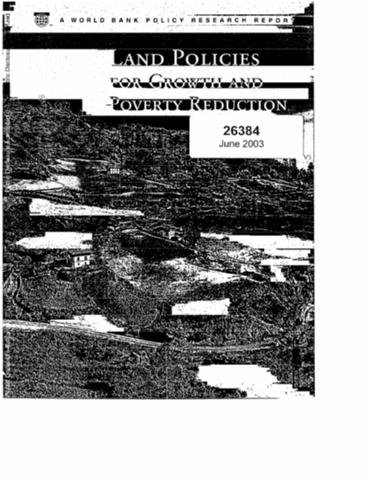Gender differentials in farm productivity: Implications for household efficiancy and agricultural policy
This chapter challenges one of the main tenets of agricultural economics—that households behave as though they are single individuals, with production factors allocated efficiently between men and women. In many contexts this is a convenient and innocuous assumption. It can be quite restrictive, however, when investigating the causes and welfare consequences of gender differences in agriculture.










